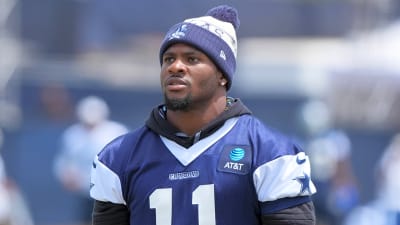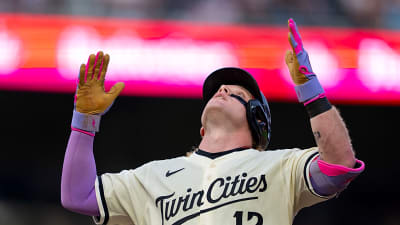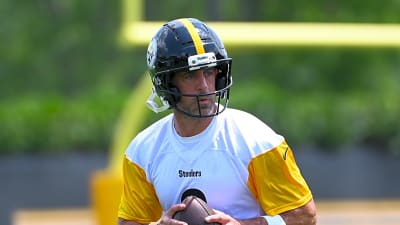
Los Angeles has long been the Hollywood stage for star players and disappointment, because not every big name who suited up for the Lakers delivered a championship. We sincerely hope that Slovenian superstar Luka Doncic doesn't one day join this list, because the two big names before him, LeBron James and Anthony Davis, have already delivered a title.
From Hall-of-Famers chasing one last ring to flashy names who never found their footing in L.A., these are the 10 high-profile Lakers players who failed to achieve what they came to do. Spoiler: Some all-time great players, unfortunately, make this list.
1. Elgin Baylor
Elgin Baylor is the perfect example of a Hall-of-Fame talent cursed by timing. Drafted before the 1959 season, he transformed a moribund Minneapolis Lakers franchise into a perennial Finals threat, leading rookie scoring, rebounding, and even assists, earning Rookie of the Year and becoming the first true franchise star in NBA history since George Mikan.
Baylor led the Lakers to eight NBA Finals appearances, but each time ran into either the Celtics or the juggernaut that was New York, and came up empty. In Game 5 of the 1962 Finals, he dropped a Finals-record 61 points with 22 rebounds, but Boston still beat L.A. in Game 7. That remains one of the greatest single-game efforts in Finals lore, yet left Baylor title-less.
The cruel irony? Baylor retired just before the Lakers finally broke through and won their first championship in Los Angeles in 1972, part of the 33-game win streak season, just after he hung up his sneakers at the start of 1971-72. He holds the record for most Finals appearances without a ring.
2. Karl Malone
Karl Malone arrived in 2004 as the ultimate Mailman, a two-time MVP, ironman mostly injury-free through 18 seasons, paired with Kobe Bryant and Shaquille O'Neal for a faded Lakers dynasty run. But the fantasy collapsed. Malone suffered a nagging injury midseason, missed 40 games in the regular season, and never regained dominance; the team chemistry unraveled, and Detroit crushed them in five games in the 2004 Finals.
Malone’s presence had initially stabilized the triangle, but his health issues exposed how fragile even star chapters can be. It’s almost embarrassing that a player with such consistency and production never grabbed that elusive ring, but that’s the cruel calculus of star stacking gone wrong.
When Malone could no longer be the glue guy (career-low 13.2 PPG during the season), the Lakers fell apart at the seams. He ultimately retired as one of the greatest scorers in NBA history, with zero championships. A brutal footnote on a stellar resume.
3. Steve Nash
Steve Nash's Lakers tenure was somewhat of a sad sequel: high hopes, big money, and instant regret. The franchise mortgaged multiple draft picks to bring in the two-time MVP in 2012, hoping he could spark another Showtime revival.
But injuries derailed everything. Nash played just 65 total games over two seasons (averaging only 11.4 PPG and 6.4 APG), straining his back lugging bags and suffering recurring leg and hamstring issues. His body simply gave out before he could find rhythm with that roster.
By the time the playoffs rolled around, Nash was barely a factor, and the Lakers flamed out in the first round. That “superteam” experiment with Nash, Dwight Howard, Kobe, and Nash never gelled; chronic injuries and poor fit undercut the vision. Nash ended his Lakers saga quickly, which was his last stand in a franchise's low point.
4. Gary Payton
When Gary Payton signed in 2004, L.A. thought they’d finally cracked the code, or so they believed. The Glove brought grit, All-Defensive credentials, and playoff savvy to a roster already featuring Shaq, Kobe, and Malone.
But while the talent was undeniable (posting 14.6 PPG, 4.2 RPG, and 5.5 APG during the season), Payton openly chafed at Phil Jackson’s triangle system. He was accustomed to being the team’s floor general, calling his own plays, controlling tempo, not sitting in the corner waiting to move without the ball.
That friction was no small matter. He eventually won a ring in Miami in 2006, but in L.A., the superteam sputtered, and Detroit demolished them in the Finals. Chemistry issues and role dissatisfaction doomed the Lakers, even with multiple future Hall-of-Famers on the roster.
5. Dwight Howard
Dwight Howard’s first go with the Lakers in 2012 was supposed to be a redemption tour. Coming off three Defensive Player of the Year awards and an MVP-caliber year in Orlando, he paired with Kobe and Nash to form a new big-three. Except it didn't work.
Howard struggled with back and shoulder injuries, chafed in D’Antoni’s pick-and-roll system built around Nash, and famously clashed with Kobe in the locker room. L.A. sputtered to a seventh-place finish and was swept in the first round of the playoffs by San Antonio.
Howard immediately exited town and admitted later he felt miscast in that version of the team and had made an emotional rather than strategic career move. Though he later returned in 2019-20, a much better fit alongside LeBron and Anthony Davis and earned a ring, his initial Lakers stint was a resounding flop: high-profile, high-expectation, zero titles.
6. Adrian Dantley
Adrian Dantley’s Lakers story is brief but telling. Acquired mid-season 1977-78 from the Pacers, Dantley joined L.A. as a prolific scorer, the kind of offensive dynamo every team craves. But he arrived just after the Baylor-West era and before the Showtime era that brought championships.
Injuries and front-office churn kept Dantley from establishing traction in L.A., and he soon moved on. Despite his scoring talents (Rookie of the Year, eventual two scoring titles), Dantley never found the right roster fit or timing in L.A.
He left without even a playoff appearance in purple and gold. A case study in timing over talent: he simply missed both dynasties but blossomed into an MVP-caliber player once he arrived in Utah.
7. Vlade Divac
In his prime, as part of the early ’90s teams, Vlade Divac did help the Lakers reach the Finals in 1991, but fell to Jordan’s Bulls. Despite being beloved in the L.A. community (and later functioning in a front-office role), his first stint bookended a career that never captured NBA gold with the purple and gold alongside Magic Johnson.
Divac’s return to the Lakers in 2004 was meant to bring leadership and stability to a post-Shaq rebuild. But injuries crushed his impact; he played just 15 games in that second stint, averaging under three points and two rebounds per night, and retired following the season. He never donned a Lakers ring, even though his return was billed as a veteran anchor.
8. Cedric Ceballos
Cedric Ceballos arrived in L.A. in 1995, quickly making an impact: All-Star in his first year, dynamic scorer, reliable defender. He averaged 21.7 points per night and was even briefly considered for MVP during a breakout season. He formed an exciting trio with Nick Van Exel and Eddie Jones, helping return the Lakers to playoff relevance and electrifying fans.
But when the Shaq-Kobe era kicked in, Ceballos was traded away before those championship squads truly gelled. Despite his strong numbers and leadership, he missed being part of the title runs starting in the late ’90s. His Lakers tenure ended just before destiny closed in, and as a result, he goes down as one of the Lakers’ most underrated talents who never got the ultimate reward in purple and gold.
9. Rudy LaRusso
Rudy LaRusso was the bruising, high-energy third wheel behind Baylor and Jerry West in the 1960s. A five-time All-Star and key defensive presence, LaRusso gave everything on every Finals series, yet the Lakers lost four straight to Boston in that era’s dynasty. He posted 15.6 PPG and 9.4 RPG during this stint, earned an All-Defensive team honor, but still walked away without a title.
By the time L.A. finally broke through in 1972, LaRusso had long since departed and retired (after the 1969 season). His career is overshadowed by timing misfortune, excelled in his era, yet just missed the breakthrough by a proverbial season or two. He epitomizes that tough 'almost' era in Lakers history.
10. Eddie Jones
Eddie Jones was a pure athlete and versatile two-way guard drafted No. 10 overall in 1994, quickly becoming a cornerstone in the Lakers’ post-Showtime rebuild. He made the All-Rookie First Team, two All-Star Teams, and anchored perimeter defense while leading the team back to playoff contention alongside contemporaries like Van Exel and Ceballos. Jones was a steady 17-points-per-game type who disrupted offenses and sparked serious attention from the opposition.
His downfall? A fresh new era dawned with Shaq and Kobe, and Jones was traded before he could fit into that dynasty mold. Despite laying the foundational groundwork for the Lakers' resurgence, he was off the team by the time the championship banner rose.
More must-reads:
- Nikola Jokic’s agent sparks LeBron James to Denver speculation with Instagram post
- Warriors still positioning themselves for Giannis Antetokounmpo blockbuster
- The 'NBA Summer League MVPs' quiz
Breaking News
Trending News
Customize Your Newsletter
 +
+
Get the latest news and rumors, customized to your favorite sports and teams. Emailed daily. Always free!








